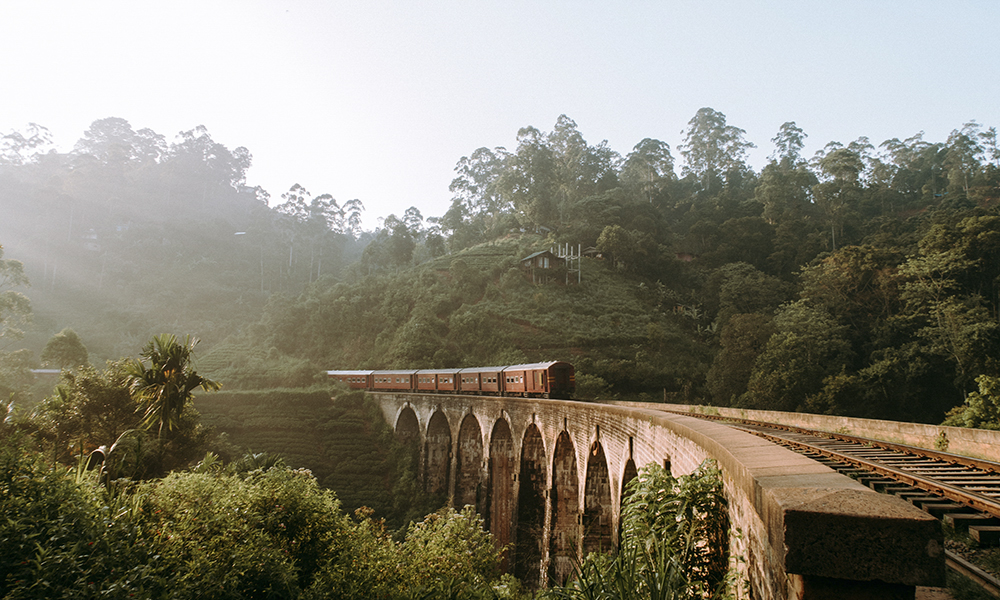As someone who is happiest while on the road, it's difficult to admit that travel is often unsustainable. Travel restrictions from Covid-19 did have an impact on emissions - cities around the world have clearer skies and struggling ecosystems have been given some time to recover. We've learnt a lot over the past year, one of the strongest messages being that we need a new normal. This means building a world that's healthy for all people and our environment. And yes, that includes travel.
While we may not be able to travel at the moment, it gives us the opportunity to consider how we should adjust our holiday habits in the future. Below are a few things that the Covid-19 pandemic can teach us about travelling more sustainably:
Appreciate what you have close to home
We've all had to alter our ideas of the perfect holiday. Covid-19 has forced many of us to take a look at what we have closer to home, and doing so benefits both us and the environment.
Covid-19 threw the commercial airlines a financial curveball: a 50% reduction in seats and a 371 billion USD loss since before the pandemic. This has, however, significantly reduced airline emissions In 2018, aviation travel emitted more than a billion tonnes of CO2 emissions. Travel restrictions in 2020 reduced this by a massive 60%.
Before the pandemic a large chunk of your travel budget would go towards airfares. With more expensive flights as airlines recover, consider spending your holiday closer to home. You'll save a good chunk of money and reduce your carbon footprint. Alternatively, the money you would have spent on flying will now be freed up for other things like accommodation,more exciting activities or supporting restaurants as they recover from lockdowns. Travelling closer to home is also much easier to organise, giving you more room for spontaneity and well-earned relaxation time.
Slow is the way to go
Slow travel—backpacking and road trips—are a great way to experience a place more like a resident rather than a tourist. Rather than flying between countries, take the train if it's an option. Not only will it be cheaper and more relaxing, you'll get some beautiful scenery along the way. On top of this, slow travel is more flexible and you're more likely to stumble across quirky and less-known places. A surprisingly good coffee from a small laneway café, a dip at a quiet beach you spotted from the highway, or an unexpected chat with a friendly local. It's these moments that often end up being the most memorable experiences.
With fewer planes in the air, our planet certainly won't hate us for it either.

(Image: Train by Genine Alyssa Pedreno-Andrada from Pexels)
Support small businesses
Small businesses are a vital part of any economy. In Australia, they account for nearly 98% of all businesses and employ 2.2 million people. They're also some of the hardest hit by the Covid-19 pandemic. It's been predicted that 8% percent of Australia's small business will be forced to permanently close due to the pandemic. That's 160, 000 unique businesses, with even more employees.
Whether we're at home or on the road, it's now more important than ever to support small businesses where possible. When travelling, it's in small businesses that you will often find the most unique souvenirs and gifts for everyone at home. Not only will you be reducing the need for mass production from larger businesses, you'll also be supporting someone's livelihood. Extra points if it's a sustainable business!
Support communities and respect places
For some communities, the lack of visitors has had some devastating results.
Nature tourism has also taken a hit. Due to a lack of funding from tourism, resulting redundancies and fewer tour groups, wildlife around the world has found itself with little protection. Poaching, human-wildlife conflict, illegal logging and fishing have all seen a spike over the pandemic period. While you might have imagined that less human-contact could only be a good thing, it's a bit more complicated.
Here in Australia, places like the Snowy Mountains are also vulnerable. In late 2019, South-Eastern Australia was hit with devastating fires that subsequently burnt nearly 19 million hectares of land. Then, with barely enough time to process the extent of the damage, the pandemic forced many scientists to stop important research into the recovery process. Nearly a year later and a return of tourism will be crucial to the restoration of affected communities and ecosystems.
So, when we can go back to travel don't forget about the importance of eco-tourism, to help the operators, and the wild places they protect, to recover.
The Covid-19 pandemic has been incredibly challenging for people around the world. As the vaccines roll out and travel starts to open up again, it's time to take a moment to pause, reflect and consider the ways we want to move forward. We've learnt some valuable lessons. Now, we need to work together to create a better world, and altering our travel habits will be an important part of the process.
Written by Ellie Prober
Ellie Prober is a freelance writer and editor with a Bachelor of Arts from Curtin University, majoring in Professional Writing and Publishing. Her favourite topics are travel, sustainability and environmental sciences. In her down-time she loves reading, going for hikes and nature photography.
